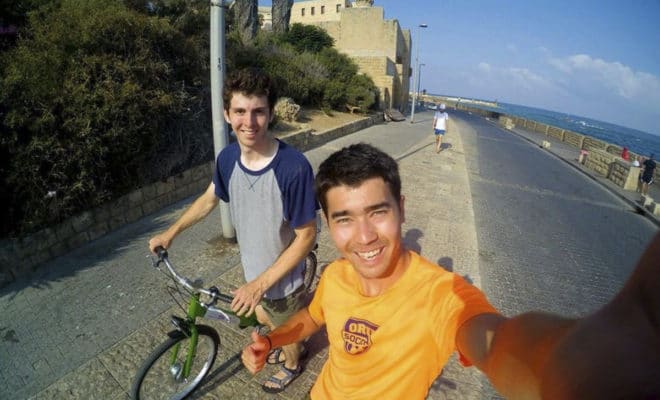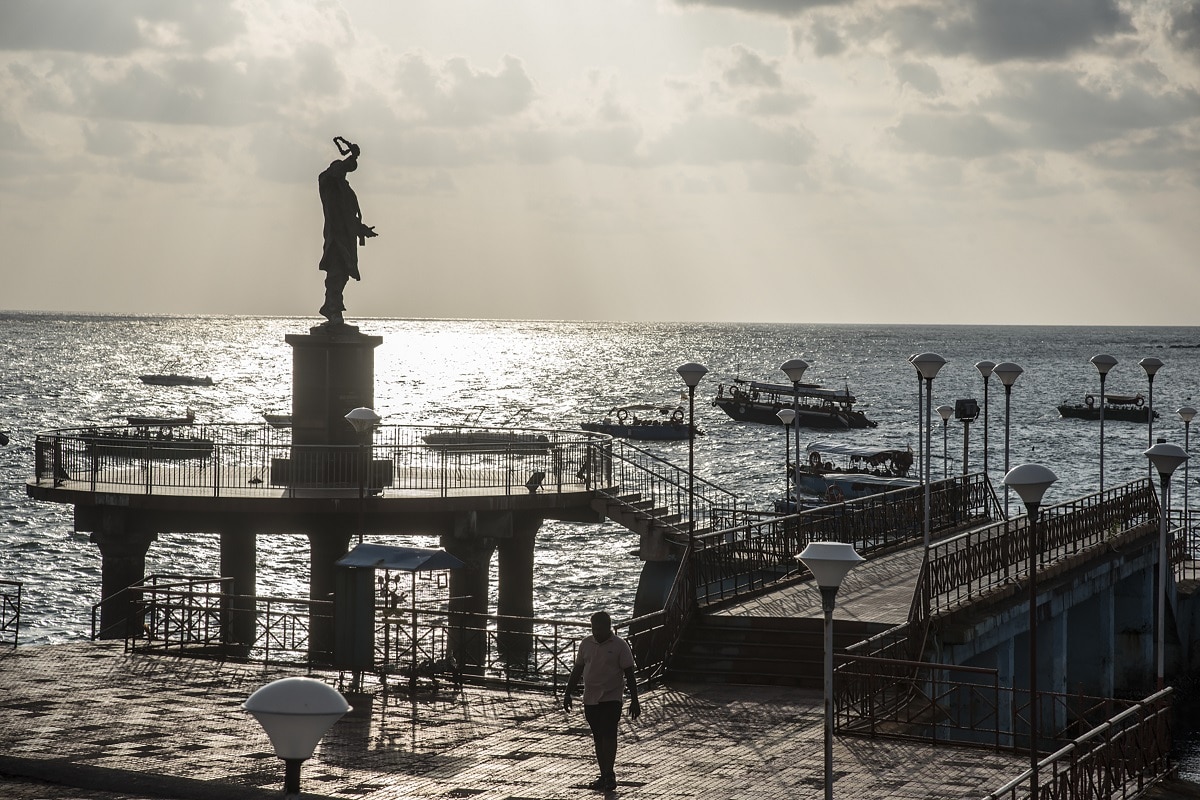Crime
American’s Death Revives Evangelical Debate Over Extreme Missionary Work

A photo provided by John Ramsey of himself, left, with John Allen Chau.
Photo: John Ramsey via The New York Times
A central tenet of Christianity is sharing the faith, and churches have adopted varied approaches to evangelizing. Some encourage short-term missions abroad while others focus on recruiting and financially supporting missionaries who embed for years in one community or culture.
The recent killing of an American missionary who tried to contact an isolated tribe on a remote Indian island has revived a debate within the evangelical movement over the extreme lengths that some missionaries are willing to go in hopes of spreading their faith.
In the time leading up to his fatal mission last month, John Allen Chau was surrounded by like-minded people who believed he was on a divine mission, called by God to minister to uncontacted people. The group that trained Chau for his mission and others have defended his actions and even hailed him as a martyr.
But other evangelicals argue that his push to contact the tribe on North Sentinel island, a group protected by Indian law, was reckless and unjustifiable. Some religious scholars, including evangelicals, are uncomfortable with Chau’s approach. Scott Moreau, a professor at Wheaton College Graduate School in Illinois, is one of them.
“I’m appalled by the naiveté of thinking you go on a beach, you throw a fish at some people, you holler at them, and then you come back and spend the night and everything is going to be fine,” Moreau said. “It doesn’t show much sensitivity, and it doesn’t show much common sense.”
Moreau was referring to Chau’s account of his interaction with the Sentinelese in notes, recovered after his death, which described what happened when he approached the island for the first time on Nov. 15. By Nov. 16, he was dead.
A central tenet of Christianity is sharing the faith, and churches have adopted varied approaches to evangelizing. Some encourage short-term missions abroad while others focus on recruiting and financially supporting missionaries who embed for years in one community or culture.

The coast of Port Blair on South Andaman Island, where John Allen Chau stayed before setting off for North Sentinel island, Nov. 28, 2018. Photo: Saumya Khandelwal/The New York Times
Mission work can be done around the world or around the block, by handing out tracts and knocking on doors, like the Jehovah’s Witnesses. For evangelical Christians — Protestants who emphasize a personal relationship with Jesus, a “born again” conversion experience and reading the Bible as God’s word — spreading the Gospel is a way of life.
From a young age, Chau became fixated on the idea of traveling to faraway lands and sharing his Christian faith.
A few weeks ago, he set out for North Sentinel island with the aid of a local fisherman. An initial attempt to approach alone by kayak ended in the islanders’ firing arrows at him, but he returned the next day, determined to make contact. By the following afternoon, the fisherman who returned to pick him up saw the islanders on a beach guarding an area where Chau’s body was believed to be buried.
Such actions play into a myth of the “missionary hero,” Moreau said.
“Part of the framing for the broader evangelical world is people have, for as long as history goes back, been willing to die to communicate their faith,” he said. “Whether he did it well is a second question which is critical, and I don’t think he did it well at all.”
But Chau’s missionary friends were quick to praise the young man on social media, calling him an inspiration and a martyr for their shared cause.
According to the Center for the Study of Global Christianity, there were an estimated 440,000 Christian missionaries working abroad in 2018. And while Chau’s case is rare, the idea of martyrdom is not.
Kathryn Long, an expert in the history of American Christianity and also a professor at Wheaton College, called it the idea of being a “risk-taker for God.”
The concept goes back generations, she said, citing Jim Elliot’s account of missionary work in the 20th century. Elliot, an American, died in 1956 along with four missionaries when they tried to make contact with a tribe in Ecuador.
“They felt most evangelicals were too complacent in their faith, and they were looking for ways to trust God” that went beyond the normal, Long said. “But the problem is: How do you know when you are taking a risk it’s because God is leading you, or because you are crazy?”
Many missionaries are inspired by a passage in the Bible in which Jesus tells his disciples to spread his teachings across the world.
“I think that the people who come out of this tradition are not just fools or reckless colonialists,” Long said. “It’s more complicated than that.”
The tribe on North Sentinel had shunned attempts at contact in the past, which experts say was in part because interactions with outsiders had resulted in violence and disease.
Pam Arlund, director of training for All Nations, the missionary group that Chau trained with, said she had worked with him before his journey to the island. While All Nations did not offer logistical support to get him there, it offered linguistics training and spiritual support, she said.
“We made it very clear the scope of the help that we could give him,” she said.
Arlund said she felt that Chau had the appropriate preparation for his journey through his linguistics, wilderness and emergency first-aid training. She cited his numerous vaccinations and self-imposed quarantine before his trip as a sign that he was considering the concerns of the tribe.
“John was not reckless or extreme at all, and he had put together a very responsible plan,” she said. “He had counted the costs and knew that he might lose his life. But he had also put plans in place to protect the North Sentinelese. That’s because he loved them.”
Some former missionaries say there is a broader problem with recklessness, though.
Corey Pigg, who has a podcast and a blog titled “Failed Missionary,” spent years working for Youth With a Mission, an organization with links to All Nations.
Pigg was based in Germany and regularly conducted short-term missions to China, overseeing a group of young people. He said they often entered the country illegally, and he felt that the group was put at risk by an absence of appropriate oversight and the glorification of those who were persecuted for their faith.
“The more martyr-complex tales you can send, the better — because that drives funding,” he said, adding that part of the draw of China for him was that it was a difficult place to be a missionary.
“I wanted to go to China because it was closed,” he said, “and I was programmed to think it was very noble.”
c.2018 New York Times News Service

You must be logged in to post a comment Login